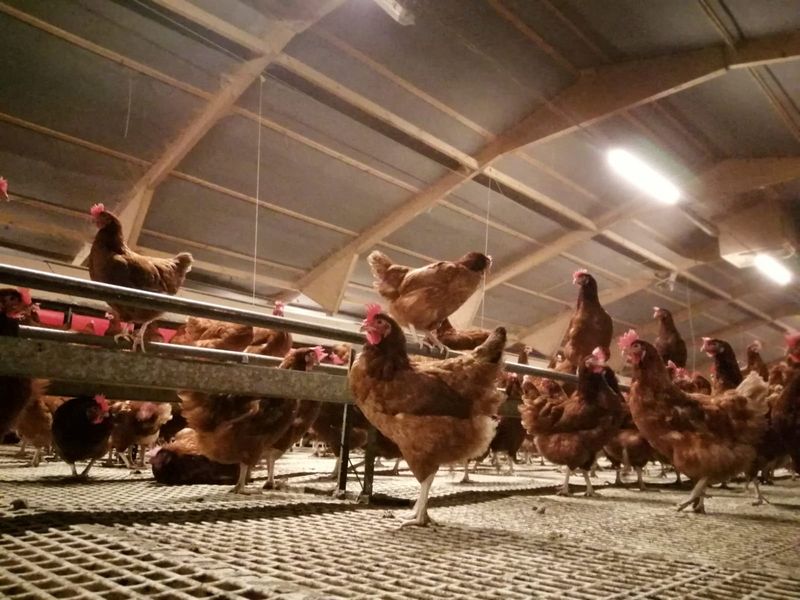Egg Industry shows UK food inflation
2022.12.19 02:25
[ad_1]

Egg Industry shows UK food inflation
Budrigannews.com – The plight of the humble egg exemplifies the damage that has been done in Britain by widespread inflation.
With battle in Ukraine driving energy and chicken feed costs higher, ranchers express out loud whatever they get compensated is at this point sufficiently not, overturning the financial matters of a key food staple.
Numerous supermarkets in the nation, including market leader Tesco (OTC:) and No. 3 Asda has restricted sales, blaming the outbreak of bird flu that, according to the retailer, caused a British shortage and ravaged flocks in Europe and the United States.
British farmers, on the other hand, argue that even though the outbreak is a factor, there aren’t enough eggs because they lose money on every box sold, so many of them have to cut back on production or quit entirely.
Robert Gooch, chief executive of the British Free Range Egg Producers Association (BFREPA), told Reuters, “The stupidity of the whole thing is that we warned retailers, we’ve given them plenty of notice this was going to happen.”
The affiliation gauges the absolute UK laying rush has fallen 6% to 36.4 million throughout the course of recent months, recommending significantly more tight inventory ahead.
According to Frank Thompstone, he reduced the number of free-range chickens on his Burton-on-Trent, central England, farm from 36,000 to 24,000 the previous year in order to reduce losses. By October he had enough, giving the expected year notice on his agreement with his purchaser.
Thompstone claims that the buyer, who packs and sells the eggs to supermarkets, offered 15 pence per dozen more in response, leaving him with a loss nonetheless.
“Why would we make that commitment?” he told Reuters. ” I’m startled evidently. The consumers’ wallets are held by retailers.
British egg producers have focused for years on free range, which now accounts for 70% of the market, driven by consumer demand. However, since only 13% of eggs in the European Union are free-range, imports are not a viable option to fill the void on UK supermarket shelves.
The shortage of eggs could only be the beginning, according to the National Farmers Union (NFU) of Britain. The new era of expensive energy and grains, combined with labor shortages, could result in additional empty shelves unless food producers and retailers reach a fair agreement for the future.
British food retailers’ fierce competition has kept prices below European averages and their profit margins among the lowest in the industry, despite the fact that double-digit inflation has strained relationships between producers and retailers around the world.
Retailers assert that this, in addition to the crisis in the cost of living brought on by rising costs of food and energy, restricts their flexibility.
However, egg producers assert that even though supermarkets have increased farmer wages and retail prices, neither is sufficient to cover the escalating costs.
According to the NFU, while British egg producers are receiving 35% more for their eggs than in 2019, the price of raw materials for chicken feed has increased by 90%.
Egg retail prices have increased 27% in the past year, according to official UK data.
A farmer can expect to pay around 138 pence to produce a dozen eggs, according to BFREPA. However, retailers are selling them for between 219 and 410 pence, while buyers are only paying around 109 pence.
Farmers across Europe have been harmed by ballooning costs and bird flu, and the EU’s largest producer, the French group CNPO, predicts that global egg production will fall for the first time ever this year.
There is no assurance that the 750,000 birds culled in the UK as a result of the bird flu will be replaced; however, additional birds may succumb to financial pressures.
Daniel Brown, whose farm in Bury St. Edmunds, eastern England, has 44,000 hens that produce 40,000 eggs per day, claims that a recent price increase of 18 pence per dozen provided some relief, but that he was still not making a profit.
“We made sense of plainly to the retailers why the cost needs to go up, what the expense increments are, what the results will be and they simply overlook you,” he told Reuters. ” Then the events unfold.
“It’s basically saying, ‘I told you so,’ but it doesn’t make you happy.”
Tesco, Aldi, and Waitrose announced last month that they had contributed an additional $35 million, or 29 million pounds, to the egg industry.
The supermarkets are represented by the British Retail Consortium, which asserts that while they acknowledge the necessity of paying farmers a price that is sustainable, they are also confronted with higher costs.
Brown warned that industry capacity will not improve anytime soon and that he will decide by April 2023 whether it is worthwhile to restock birds for a subsequent production cycle.
More LG Energy Solutions invests in battery manufacturing
“It would still take six to eight months to rear enough birds to replace those that have been lost,” he stated, “if the retailers were to come to the industry today with a brilliant offer and say ‘have another 70 pence a dozen’.”








